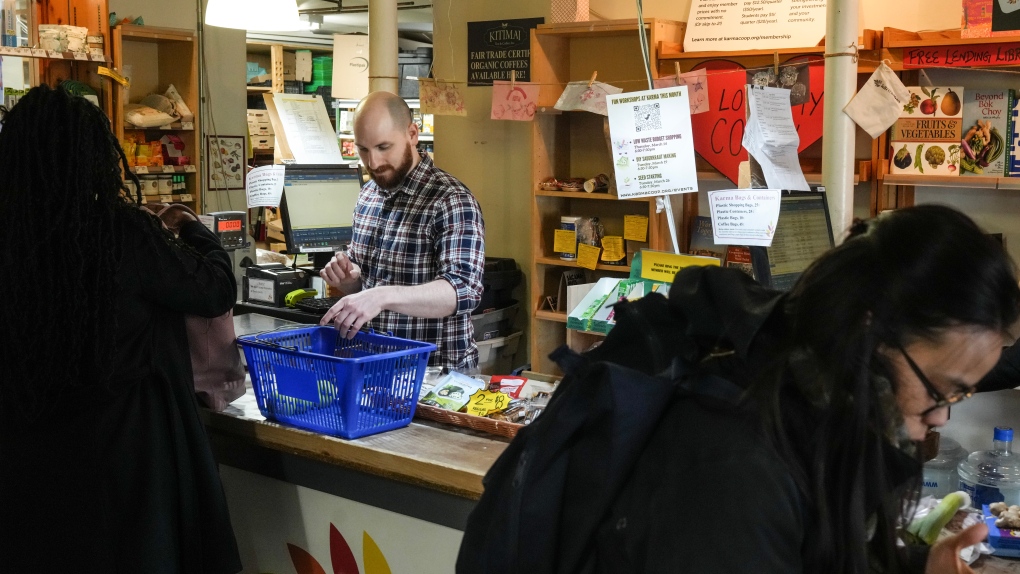
Grocery co-ops an alternative to corporate grocers amid anger, mistrust: experts
CTV
Co-operatives are found in many forms, from agricultural co-ops to grocery stores, gas stations and car-shares. Their exact business models vary, but what they have in common is that they are owned by their members, who have a share in the organization and a say in how it runs.
These days, Bruce Woodrow gets most of his groceries at one of two places: Costco, and a small grocery co-operative nestled in an alley in the heart of Toronto.
The retired lawyer — along with many Canadians over the past couple of years — had been growing more concerned with the grocery industry and the profits it was turning as food prices climbed.
Woodrow joined Karma Co-op as a member last spring and now volunteers on the store's finance committee.
"The money, I know, is going to make an operation that I believe in better," said Woodrow.
Co-operatives are found in many forms, from agricultural co-ops to grocery stores, gas stations and car-shares. Their exact business models vary, but what they have in common is that they are owned by their members, who have a share in the organization and a say in how it runs.
About 70 per cent of co-ops are owned by their customers, said Daniel Brunette, senior director of external affairs at Co-operatives and Mutuals Canada. Other co-ops are owned by producers, such as farmers or artists; workers; or multiple stakeholders.
While there's been a steady increase in consumer-owned grocery co-ops in the U.S. in recent years, Canada hasn't seen the same kind of uptick, said Jon Steinman, author of "Grocery Story: The Promise of Food Co-ops in the Age of Grocery Giants."
